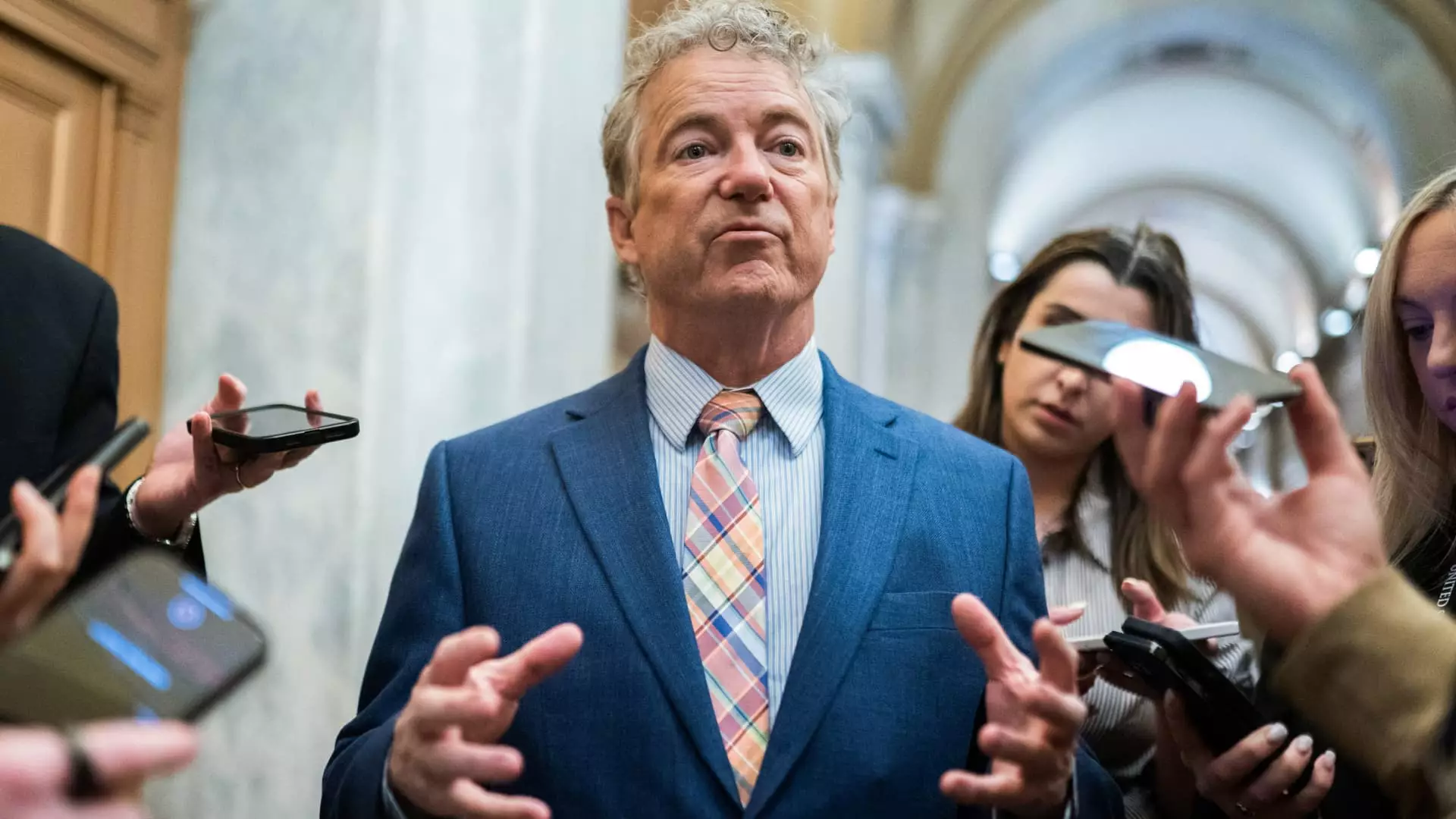In an era marked by political polarities, the recent tussle between Donald Trump and Senator Rand Paul serves as a fascinating case study in the dynamics of intra-party conflict. Trump’s acquisition of significant political clout and his fervent drive to push through an ambitious budget bill has brought him into direct confrontation with Paul, who embodies the libertarian ethos of fiscal conservatism. The conflict isn’t merely interpersonal; it encapsulates a broader ideological schism that pervades the Republican Party today.
Trump’s response to Paul’s dissent—which can only be described as a fit of vitriol—illustrates his impatience with those who deign to challenge his grand visions. The President, boasting about his budget plan being a “one big, beautiful bill,” faces a formidable challenge in persuading Republican legislators to follow him into the financial abyss of soaring debt. Trump’s dismissive assessment that Paul “loves voting ‘NO’ on everything” reveals not only his frustration but also highlights a worrisome trend: a propensity to marginalize contrary opinions, reducing complex fiscal matters to simple party lines.
Checking Accountability Against Growth
At the heart of this confrontation lies the pivotal issue of the debt ceiling. Trump characterizes the bill’s provisions as a catalyst for “tremendous GROWTH,” yet this optimism raises alarm bells for many. Critics argue that such economic theories should be scrutinized rigorously; the potential consequences can be dire. Rand Paul, advocating for accountability and fiscal restraint, rightly questions the sustainability of adding trillions to the national debt. This crucial objection is often met with derision by Trump, who favors hyperbolic affirmations over sober considerations of financial realities.
The crux of Paul’s argument—that raising the debt ceiling signals a reckless abandonment of responsibility—should resonate with all those who claim to value economic integrity. It’s a clarion call for prudent governance in a hyper-aggressive political landscape determined to prioritize short-term gains over long-term stability. The debt ceiling increase, according to Paul, portends a future where fiscal irresponsibility becomes normalized—a terrifying prospect that could place an unbearable burden on generations to come.
Personal Attacks vs. Policy Discussions
What’s particularly troubling is Trump’s pivot towards personal attacks rather than engaging Paul in a substantive discussion about the merits and drawbacks of the proposed budget plan. When Trump belittles Paul as having “no practical or constructive ideas,” it underscores a worrying trend: the relegation of meaningful debate in favor of character assassination. Such tactics not only diminish civil discourse but also expose a glaring unwillingness to grapple with dissent—especially from within one’s own ranks.
While political figureheads often operate in a gladiatorial arena of sorts, it is imperative to maintain a commitment to policy discourse, especially during discussions about fiscal strategy. One cannot help but feel that Trump’s rhetoric trivializes a vital dialogue about America’s long-term fiscal health—a conversation that transcends mere party allegiance.
The Irony of Tax Cuts and Welfare Revisions
The contentious budget bill also includes controversial provisions such as imposing work requirements for Medicaid and reforms to SNAP, initiatives that could greatly affect low-income Americans. The irony of supporting broad tax cuts while simultaneously tightening the safety net for the most vulnerable creates a perplexing dichotomy; it raises questions about the priorities being espoused by the Trump administration. Are we pursuing growth, or simply benefiting a select few at the expense of those who rely on these programs for survival?
Many citizens are left grappling with the uncomfortable reality that amidst promises of economic expansion, the fabric of social security is being unraveled. The potential repercussions of such policies may not only exacerbate inequality but also foster a volatile socio-economic climate that further alienates marginalized communities from the political process.
Looking Ahead: A Party at a Crossroads
As Congress navigates these complex financial waters—challenging the status quo while addressing internal dissent—the Republican Party stands at a crossroads. The ultimate outcome of this budget bill could redefine what it means to be a conservative today. Will the party align itself with the reckless optimism of Trump’s approach, or will it heed Paul’s cautionary stance for the sake of fiscal accountability?
Ultimately, the stakes couldn’t be higher. The American public is keenly aware of the implications of these policies, and they have the power to reshape the political landscape. As Trump continues to pressure dissenting voices like Paul, a critical reassessment of what conservatism entails—and the values it strives to uphold—is sorely needed, lest the party becomes unrecognizable amidst its internal strife.


Leave a Reply